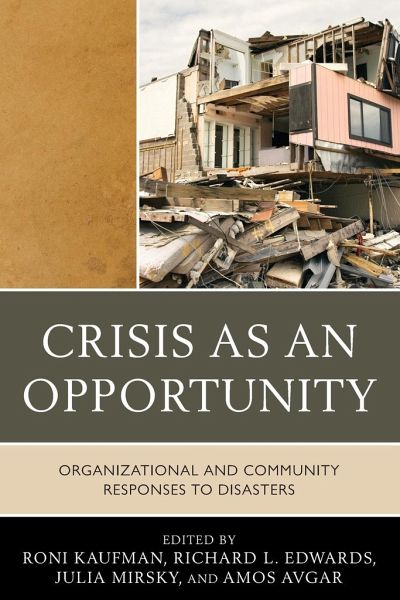
Crisis as an Opportunity
Organizational and Community Responses to Disasters
Versandkostenfrei!
Versandfertig in 1-2 Wochen
51,99 €
inkl. MwSt.
Weitere Ausgaben:

PAYBACK Punkte
26 °P sammeln!
This book addresses the development of long-term interventions following disasters, emphasizing disadvantaged communities. Attention is given to the role of change agents, such as local and international non-governmental organizations (NGOs) and psychosocial professionals, to ensure that the window of opportunity is realized, generating immediate help and sustained community development.













